#reading reflection
Explore tagged Tumblr posts
Text
"The Empty Mirror" is a reflection by the author, Janwillem van de Wetering, on his time living and studying meditation in a Buddhist monastery in Kyoto in the late 1950s.
The account was published (and I presume written) more than ten years later in 1971, and one of the most immediately fascinating parts of the text is the way it reflects the cultural views and attitudes of the time it was lived, and published in. There are definitely elements of the text that would shock a sensitive reader.
At one point "Jan-san" (as he's called in the text) reflects almost idly, or perhaps meditatively, on a sexual assault that he committed– rubbing up against a woman on a train. This is given no particular weight and doesn't dwell in his conscience, in fact he seems to write with no shame in enjoying it. The account is broadly misogynistic in general– the presence of women is almost never commented on, and when they are, it is in conjunction with sexual activity. Homosexuality, in contrast, if brought up several times in the text and while the author does not write about participating in it, its repeated referencing, and the comment that it's "more normal in Japan" as well as other comments lead me to speculate that he did participate, and simply left it out of his account.
More fascinating than speculating on Jan-san's sexual activity or lack of it, and closer to the point of the narrative, is his study of Zen meditation. The author came to Japan to study under a master with the hope of reaching enlightenment– in his own words, finding out the purpose of life. What's fascinating to me in his account is how absolutely bad he is at it. And he writes about being bad at it. The central theme of the narrative is that Jan-san absolutely sucks as a monk the entire time he's living and studying. At the beginning of his studies he's given a "koan" (a meditative story) to solve as his training, and over the course of the narrative he never solves it. It's repeatedly made clear that other students solve their koans much faster, and Jan-san just can't do it. He spends a lot of time smoking, and he goes to the bath house, and he has sex with whores. He gets hemorrhoids from trying to sit lotus style. He meditates 11 hours a day, and he leaves Japan without ever getting closer to the answers that he was looking for.
The Empty Mirror strikes me as a meditation on, and reflection on hubris, and ultimately on failure. The author seems excessively self-involved and it frankly doesn't surprise me that he was unable to solve his koan, because throughout the narrative the biggest character is not just Jan-san, but his ego. His own obsessive need to be succeeding, to solve things, to be in control and enjoy himself. This makes for a wild departure with other accounts of Zen study that I've read which tend to center the teachings, or the other people that the author met and interacted with. The Empty Mirror is a navel gaze, and a fascinating look at the author's psyche.
Aside from being a 'what not to do when studying Zen" manual, one of the things I loved best about The Empty Mirror was its look at the Japan of the era from an outsider's eyes, even if it was admittedly shallow due to its author's self involvement.
I don't know if I'd recommend the work to most people, but I can say that it held my attention through the entire book, and that I read it in one sitting. I think elements of it will stay in my head for a while– maybe next time I'm feeling a little too smug.
Some excerpts from the book under the cut.




#reading reflection#book review#book reading#zen buddhism#zen#blog updates#sinister reads#the empty mirror#🔫🦢#cw sa mention
10 notes
·
View notes
Text













Finally now that the comic is fully public on comicfury, I get to share it with all of you here, too <3
If you enjoyed, please consider supporting by buying a PDF of the comic on itch.io: https://tawnysoup.itch.io/home-in-the-woods
#I'd rather not clutter the caption so I'll ramble a little in the tags#HitW is short but special to me as it represents and encapsulates some hard life experiences I was going through at the time of its creatio#Ofc in a more metaphorical manner! but. I have been very much enjoying reading people's comments and speculation as its been posting#the interpretations are so meaningful and varied and i love that and really want to encourage anyone to reflect on what it means to them#for me making this comic was a way to process and move past trauma. i feel like it ends anti-climactically but i wanted to be true to#where i thought things were actually going in my life moreso than to veer towards impact. ultimately im glad i managed to finish it#and for it to finish going public right before the new year? maybe i can see this as shedding that old pain in time to become something new#so thank you for reading for supporting and for still being here. lets wake up to 2025 with wind in our sails#Home in the Woods#my art#my comics#original comic#cw guns#cw blood#cw body horror
27K notes
·
View notes
Text
today i finished a book that had perhaps the least sexy orgy scene.
it was masterful. told the reader a ton about the characters, how hollow and meaningless their lives are. how they see each other as tools to be used for their own gain.
other characters (the service staff on their elite space station) referred to a (fun!) staff party/orgy/hook-up event to emphasize that the problem is the people participating. (both, the author doesn't have anything against orgies *and* look how fucked up these rich people are).
bravo, chef's kiss.
0 notes
Text



"just as I did, in 1983."
you'd never know my favourite parts of the show are the fucked up insane bits when my first instinct is to draw the cheesiest thing imaginable
#my art#interview with the vampire#iwtv amc#iwtv#armand iwtv#daniel molloy#armand#armandaniel#devils minion#drew this before the finale but idk maybe this is during the unspecified amount of time between armands divorce and daniels press tour#the titian painting doesnt fit at ALL with the timeline btw#i THOUGHT it did bc i assumed 1508 was when armand was turned into a vampire BUT upon reflection thats more likely the year he was born#and even then the painting was made in like 1510 so fuck me i guess. also im foggy on when armand was taken to rome#idk man i havent read the books and i failed art history on two separate occasions i cannot endeavor for accuracy#anyway as much as i love 70s/80s devils minion i have equal love for old man daniel#his cynicism has been tempered by time... refined like a diamond... he dont gaf and bullies his loser vampire and its hilarious#like ''sure yeah fine all these old italian renaissance guys saw ur ethereal otherworldly beauty but literally anybody can see that''#''IM the only mf who gets to experience the incandescent joy of seeing you be a messy idiot''#sidenote trying to make armand look unflattering is impossible u can blame the show for casting the worlds most beautiful man
12K notes
·
View notes
Text
Just like you twist and turn over the mistakes and hiccups you made along the way, remember to marvel and celebrate the accomplishments and successes you achieved. It’s the same journey, just reframed for a better purpose. Be nice to yourself.
0 notes
Text
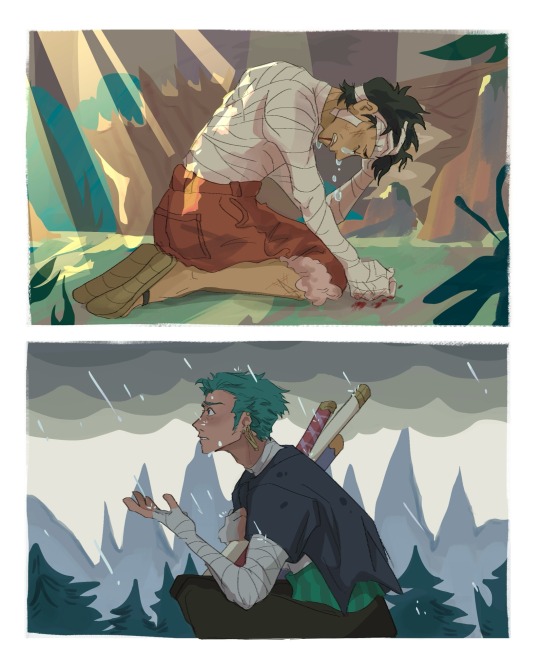
when it rains, it pours
#reading through post war stuff with my head in my hands#it’s getting me rly bad guys. It’s getting me rly bad#anyways you ever think about luzo being so in tune w/ eo that even strange cosmic forces pick up and reflect their emotions#something something zoro couldnt be there for his captain when he needed him the most and spent two years in penance without the sun#roronoa zoro#one piece#monkey d. luffy#one piece fanart#zoro#luffy#my art#luzo#zolu
12K notes
·
View notes
Text
well i haven't spilled my guts on tumblr since i was in college but it's the platform that's felt The Most Mine thru the years, so
let's talk!
i've had a huge chip on my shoulder that i wanted off before the year ends. very bad professional experience to follow
so firstly to get ahead of the speculating, i'm not naming names or anything. some of you will puzzle out who i'm talking about, but please don't bother anyone especially not on my behalf. i've worked hard to distance myself from them the past few months. shit happens, especially when you're a dumb bitch (that's me!)
but also this person was someone i considered a close friend and it makes me uneasy to possibly direct backlash at them. "then why post about it" bc i did intermittent work for them for over a year. this is just about that. so hear me out
basically it started off fine. i initially did some commission work for good pay, then was invited to become more involved with their team. unfortunately as i became more involved with their operation it became more disorganized over time. projects started then forgotten, constantly shifting schedules, lapsing communication between roles, confusing financials, and often inconsistent if not late payments. during mid 2023 i was doing colorist work, sometimes on a one day turnaround (all while also preparing drawfee's summer merch launch). the payroll wasn't set up correctly so i wasn't paid for that work for over a year (more on that later), tho to be fair that was largely my own fault at first as i just didnt realize the payments didn't go thru lol
i always consider myself decently capable of separating friendship and coworker-ship; i run a company with 4 wonderful friends, going strong for almost 5 years. that didn't really work out in this case. by early this year our friendship was on the rocks; work issues fed into personal issues and vice versa. so as the rest of this shit plays out, we had just had our first "big fight" which i felt very bad about and added to all the upcoming tension
a huge point of friction was the fact that i really wanted to work with them to make a music video for one of their songs. i've always wanted a chance to make a music video, was confident in a concept i came up with, and even did some concept art for the idea. everyone insisted they loved the concept and that we should do it, but we kept pushing it back for various reasons. it ended up becoming a huge sticking point for my frustrations, which i tried to express productively. TLDR, we eventually got around to discussing it seriously around april.
i planned to ask for $4000 with negotiable add-on for the whole project, which was my Friend Discount price. i was offered a contract for $1000 flat rate, as they insisted that was the only budget they had for it.
don't ask me why i signed it lol. i didn't even counter offer
there was some girlmath to it: i wanted an extra 1k for a student scholarship i provide every spring and well, there it was. but if i had to guess, i saw it as something i just couldn't back down from any more. i caused these folks- my friends- a lot of problems bc i dug my heels in so deep to chase this project, so fuck it we ball
i had about 4 months to solo a 3 minute music video. they wanted it done in august so they could release it before summer ended, bc "it was a summer song". to be fair i was asked if i needed them to pay for anything extra like assistants (which i would have to find and manage) but i was so immediately overwhelmed that i didn't wanna slow down to wait on that process lol. there was very minimal communication other than brief progress check-ins every few weeks. i did everything for that project myself: the original concept, character designs, storyboards, layouts, backgrounds. i even did the editing/compositing for the final cut of the MV. the only favor i did myself was limiting the amount of it that was actually animated to simple loops and motions. hardly my best work but it was work still done
i did it all in between my full time job. i ended up having to take nearly a month away from most of my drawfee duties (with the support of the others) to make the august deadline. i only ever asked for a 3 day extension (notice given about a week in advance, around the same time i was given the final song file lol). i finished the music video at 6am on the final deadline and recorded drawfee the next day on 2 hours of sleep
but it was done, coolies. the team was very happy with the final product. honestly, without getting into it, those were a very emotionally taxing 4 months. on the professional side, i regretted agreeing to the project and especially for the dogshit rate they offered. i felt like a hypocrite- as someone who always wanted to advocate for younger artists demanding their worth in a world that's getting increasingly hostile toward creatives, i failed myself
so when i met with the manager to discuss the release plan, i told them to do whatever worked best for them as i only had one request: i wanted my credit removed from the project
tbh... like... lmao this dramatic bitch right!! but really, i decided that bad practices only breed worse business. friends or not, it was unprofessional of me to accept such a low paying job so i just didn't want my name used in association. everything felt so muddled to me and i was just really tired at this point
the manager was very understanding and then offered that i could be paid more. they said that their team "was surprised" i accepted their low rate and they would be happy to up the amount. this confused me as the initial budget seemed pretty set and at no point between april and august was i offered a better rate. i knew these guys weren't made of money. so, i declined. i didn't want to put anyone out of their means over work that was already done and agreed upon. but more importantly, i was over the whole thing and didn't want to prolong the project with a contract renegotiation. i just insisted my name be removed
they decided to use a pseudonym (which i was fine with) so they could create a story about a character who made the MV (this sounds really convoluted but i don't know how better to put it without getting specific, sorry). that way if people asked about the credit, they could speak comfortably about it without signaling that something went wrong behind the scenes. ok, kind of a silly narrative imo but whatevs. and maybe this is where i finally went truly wrong but. yolo i guess
i gave the name "D. Smithee", D as in dilfosaur and Smithee as in Alan Smithee. look it up for fun film trivia ig! was it passive aggressive of me to reference that in this context? yeah, honestly. but i thought it was kinda funny and really not that deep. if it was a problem, i have other real, non-cheeky pseudonyms i regularly use. the manager accepted it and all i had to do was wait for them to post the video and i could leave the whole experience behind me
a week later i received a message from the manager that my pseudonym had been denied by the rest of the team bc one of them got the reference. fair enough lol. however, they decided that rather than ask for a different name, the were going to make one up for me that they liked and would "fit the [story]", without asking me
and that! is when i finally snapped!
i was so tired of giving them concessions at this point and having a credit made up for me without any input from me felt genuinely violating and unethical. i started to Panic bc of how stressed i was, and asked for my overdue payments (aka the $500 still owed on the MV, and the colorist rate from a year prior that was never paid even tho i reported it in january) to be scheduled ASAP as i was leaving the work discord immediately
i finally told them off for exploiting me throughout the months while i kept trying to just be nice and finish my contact cleanly. in return i was told that it was unfair to say that as i agreed to everything- i accepted their cheap rate and denied further payment so that was all settled, and it was ok to change my credit without my consent bc i "said they could do whatever with the release". i called bullshit, ended the convo as kindly as i could, and cried lol. they agreed to ditch the pseudonym and just give no credit. that night was the last i heard from anyone on that team
and the real kicker?
august came and went. then september, october... and they never released the music video
and i don't know why, because i was never contacted about it. i've been removed from the picture entirely i guess. 4 months and boatloads of stress. just. up in smoke. i don't know what i expected honestly
it's hard to not take everything that happened personally and as done in bad faith. i really do, honestly. i've had plenty of shitty deals in my almost 10 year art career, but it hits different from people you saw as friends. but to the point of "why not keep it private", i have never felt so disrespected as a professional as i did this past year. i can toy with money and credits and other formalities all i want, but my work- my ideas, my labor, my effort- is still so important to me. i felt like the biggest idiot for doing so much work, pouring so much of myself into a piece for someone's use, for what has amounted to nothing
but more importantly i hated myself for undervaluing my work, even if initially i thought this person was a trusted friend. money is not really an issue for me- drawfee is my main job and i am fine and comfortable. it's so important to pay artists appropriately but i often undersell my own work bc i value the collaboration and passion between creatives more than the reward. i think a lot of artists tend to feel the same, and it often makes us easy to take advantage of. it's so difficult to find the balance between passion and making a fair living, and i think there's some shame within ourselves when artists choose to prioritize that passion
i wanted to finally get all this off my chest bc i was ashamed of every choice i made. things like this happen all the time i'm sure and hiding these mistakes only make it easier for it to happen to other people
tldr always value your work and protect your passion from people who just see it as a product. and don't give cheeky pseudonyms i guess lol
(and again pls don't bother anyone involved about this. a lot of chaos has left my life as i moved past all this, and this is me closing a door without opening new ones hopefully lol)
this shit was truly
so ass.
but i'm moving past it now
but on a nicer note. outside of all of this nonsense, i made lots of good memories this year. i'm truly so grateful to the many wonderful people in my life who keep me going even when i fuck up big time!
and thank you to all of you strangers who, despite everything, give me the time of day. especially if you read this whole thing. you're a real one :')
happy new year!
#getting personelle#reflecting about some shit#thank u for reading or not reading just thanks for sticking around ig
4K notes
·
View notes
Text
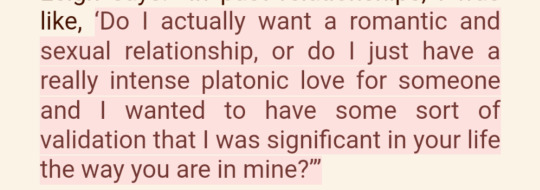
been going a little bit insane about this sentence from Ace by Angela Chen for the past week
#replace this with any other type of significant relationship too#also! this book actually rules btw i really recommend it#i didnt read it when it first cane out bc i was like. well i am already pretty familiar with asexuality and not rly interested in 101 stuff#but it turns out it doesnt feel 101-y at all its a super awesome piece of queer theory and also chen has Good opinions#and not weird watered down ones that i am sometimes wary of in aspec communities (frankly especially ace ones)#i think maybe if more people approached asexuality the way chen does (including and maybe even especially ace people)#i would be more inclined to still ID as ace#but anyways!#aro#aromantic#<- tag selections that reflect how i personally engage with this quote#also#described in alt text#also also#j tag#:/#aro media
10K notes
·
View notes
Text
Don't shine so others can see you. Shine so that through you, others can see Him. - C.S. Lewis
#hope#love#faith#inspiration#christian#blessed#believe#catholic#write#praise#pray#prayer#believer#faithful#positive#christ#jesus#team jesus#read#ponder#reflect#reflection#inspire#catholicism#christianity#humility#humble#forgive#peace#patience
1K notes
·
View notes
Text
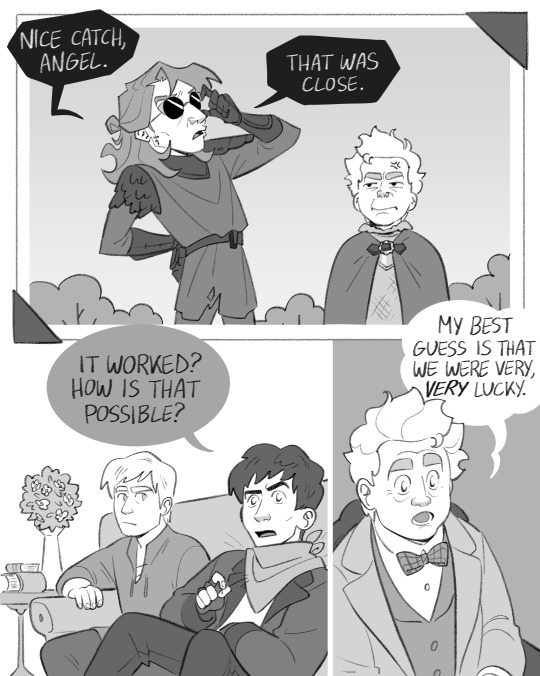
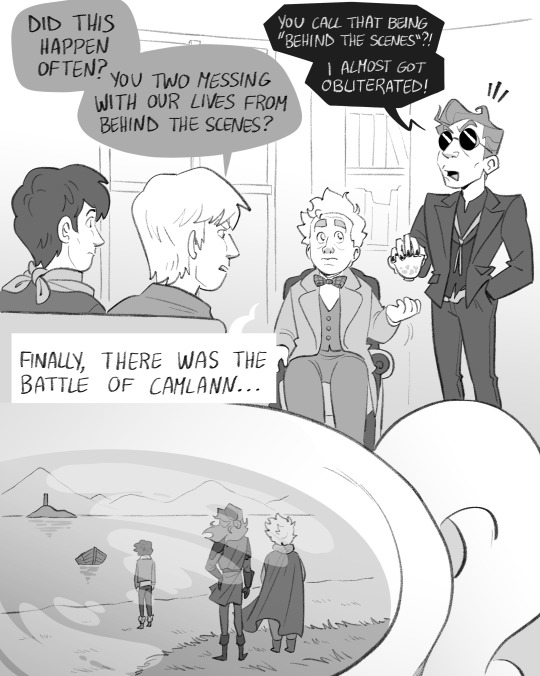
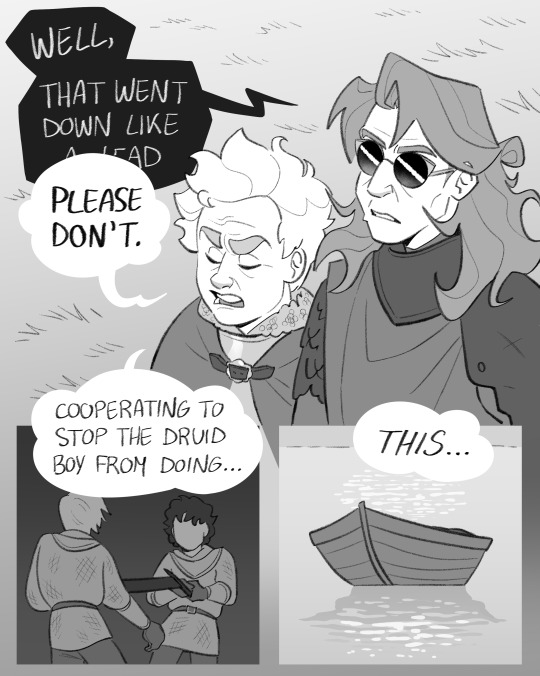
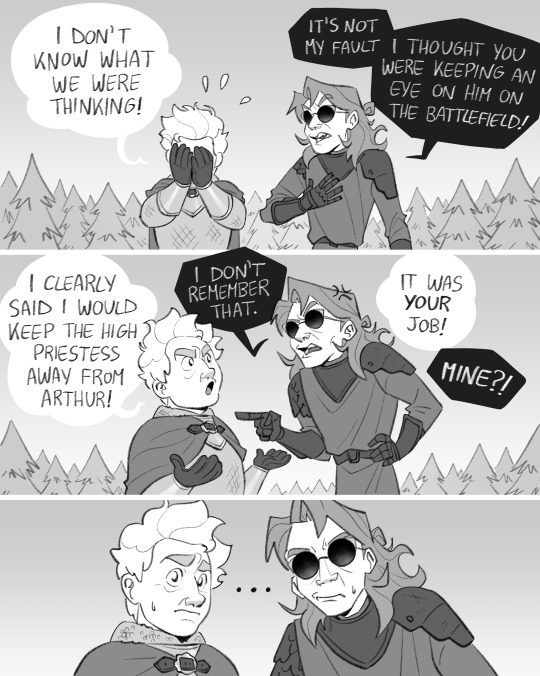
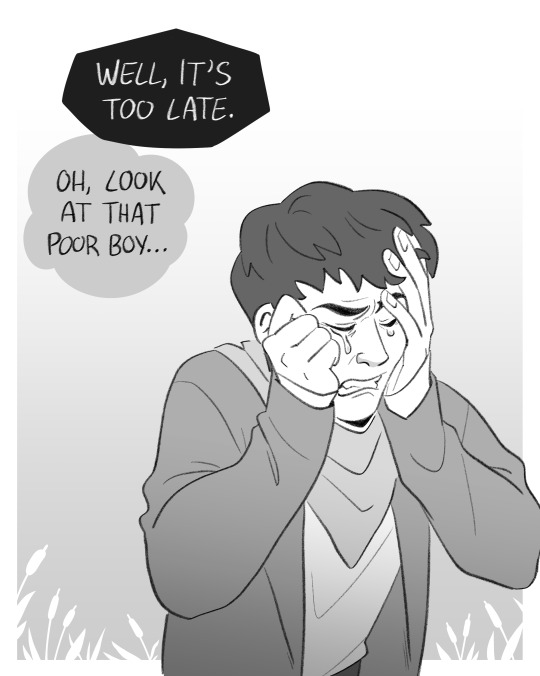
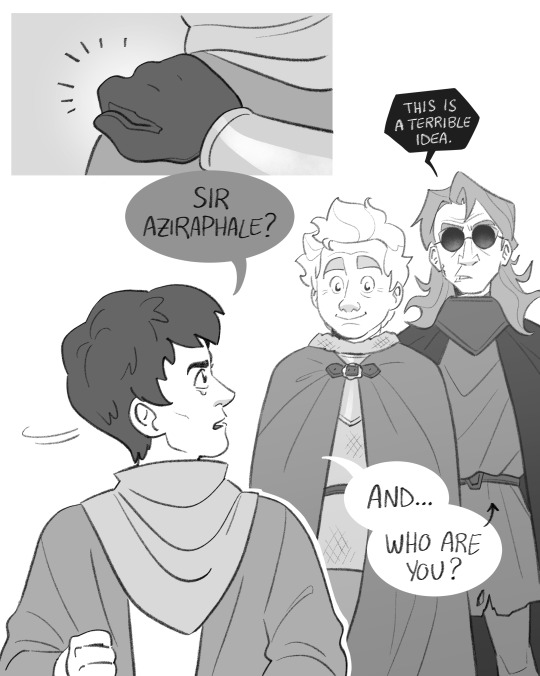
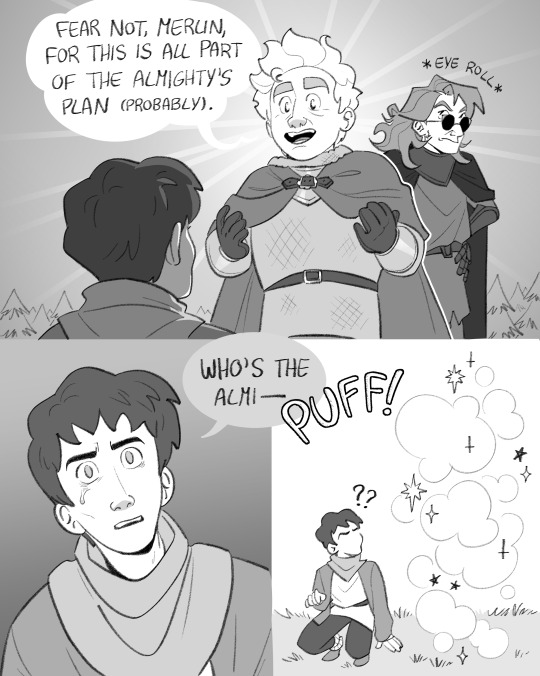
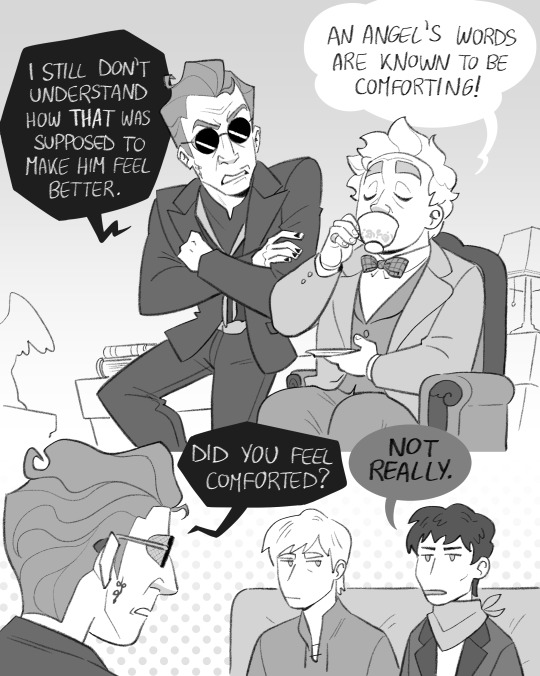
Happy Merlin finale anniversary to those who celebrate :)
I'm taking a small break from the comic for the holidays, see you in late January with Part 8 and a new story arc!
First >> Prev >> Next
#bbc merlin#good omens#crowley#aziraphale#merlin#arthur pendragon#merlin spoilers#magic omens au#comic#art#long post#this “reflection in the tea” transition is ridiculous and i love it#feel free to send me asks btw!! I love talking about the comic and reading yor questions!!
7K notes
·
View notes
Text
Sobbing uncontrollably reading through a dissertation about the college experience of students with ADHD. It is like reading a report about my life that just says over and over "My experiences are real. My hardships are real. I am not lazy, I am not dumb. My struggles were not my fault, and they were not a moral failing. The failure was with the system, not with me."
Here's a line that got me in particular:
"Hotez et al.(2022) compared the health, academic, and non-academic capacities of a nationally representative sample of U.S. first-year college students with ADHD and without ADHD. Students with ADHD self-reported lower academic aspirations and more feelings of depression and overwhelm, ranking themselves lower in their general emotional health. The fact that students with ADHD scored in the highest 10th percentile for many non-academic traits, such as artistic ability, computer skills, creativity, public speaking, social confidence, self-understanding and understanding of others, compassion, and risk-tasking, suggests that this population has strengths that are frequently underappreciated in academia."
(the paper is a thesis called "Understanding the Collegiate Experience for Students With ADHD" by Gia Long, 2022)
#adhd#actually adhd#i often hyperbolize but i am dead serious when i say sobbing uncontrollably. this is why i was putting off this assignment.#1000 years of hell to professors who assign self-reflection papers /hj#i dont feel comfy posting the pdf bc its not mine butttt.. i will share it to people who dm me.#edit: pages 80-85#edit: thank you to everyone who reached out and asked for the pdf!! i wasn’t expecting this reaction#keep reaching out I’ll keep sending it#if anyone is interested but struggles to read academic papers pls ask me for help bc I’ve gotten a lot of practice with them and am Glad to#expand someone’s access to a paper like this
4K notes
·
View notes
Text

#jesus chirst#lord jesus christ#jesusisgod#i talk to jesus#jesusislord#faith in jesus#jesussaves#jesus is coming#jesus#jesus christ#jesus loves you#belief in jesus#christian#christian encouragement#christian bible#christianity#christian blog#christian faith#christian living#religious art#religion#bible quotes#bible devotions#bible reading#holy bible#bible reflection#bible quote#bible scripture#bible#bible verse
838 notes
·
View notes
Text

✮🃜🃚🃖🃁🂭🂺✮
striking a deal (sevika x reader)
contains: sevika being a jackass (what's new tho I still love her), gambling, reader sort of being a hater against gambling due to the negative impacts its had on their friend, enemies-with-a-bit-of-desire sort of vibe going on, reader is called a "girlfriend," very sfw, not much explicit romance and just a bit of flirting + attraction
a/n: hiii pookies so this is my first fic for miss sevika!! I hope it's accurate to her character and you all enjoy <33 would love to hear what y'all think hehe
art: four gentlemen of high rank playing primero
✮🃜🃚🃖🃁🂭🂺✮
"hey, do you know where I can find sevika?" you tentatively ask the bartender. he's some nervous looking kid who's probably going to quit after two weeks of witnessing the shit show that is the last drop since vander was killed.
not that you can blame him. you rarely frequent this part of the undercity, avoiding it for both the sake of safety and your own sense of sanity. you couldn't stand half the crap that went down here -- all the drunken fights, the sloshing of alcohol spilling and soaking through nearly every visitor's clothes, the lewd public displays that sent your face burning and ducking down -- and, of course, the gambling.
the damn gambling you had been imploring your friend, zafar, to put aside for almost half a year now. ever since he had lost his younger sister to an "intervention" enforcers had made at a party a year ago, every bad habit of his that had once been a small spring in the ground, roots shallow, had blossomed into a rotten, ugly plant that had spread faster than the blink of an eye could capture. you tried to be there for him, you did, but you also had your own family to take care of, and with his new friends being nothing but a bunch of enablers, he had now landed himself into a world of debt.
why, you ask? he had made the stupid decision to play with one of silco's little henchmen, sevika, whose reputation at cards is so notorious that even you've heard of it from your dinky little corner, far away from this place. you had heard rumours of her, some admiring, others downright terrifying. her help in smuggling shimmer, the ass-whooping she did for silco, how she was a constant presence when it came to the drug lord. that was enough to drain you of any admiration you could've beheld for such a strong woman. you had seen what shimmer did, the power it had in crumbling people's bodies, mental states, and their ability to keep living. you don't approve of anyone who's involved in the horrors of it.
the only reason you're here now is because zafar came to you sobbing this morning, grief heavy in his eyes over the money he had lost. he claimed sevika cheated it out of him, and while you still aren't sure as to how true that is, you'd at least try to set the record straight with her. you want to do something, anything, for standing around and watching zafar self-destruct no longer feels like a valid option. you promised him you'd try to see if you could convince her to return his money, under the condition of him avoiding gambling as best as he could and beginning to work part-time at the shop where you worked so he could have a more reliable source of income.
you can only hope this shitty plan will be in your favour. already, your stomach is tightening with anxiety, the knot circling and circling to bulge against your gut and make you slightly nauseated. but, you try to, at least physically, keep your cool, schooling your features to be calm, levelled and devoid of any jitters or twitches.
the bartender cocks his head to a dark corner near the jukebox. "right there. why, you've got business with her?"
a spring of irritation flickers through you at his prodding. the less he knows, the better. "in a way." you nod your thanks, then make your way to her.
you had seen flashes of sevika before. rallies, protests, gang fights. a blur of dark hair, a murky red cape and swinging fists. that's all she ever was to you. so, now, to behold her in her full state, feels... intimidating, to say the least. she carries herself as though the rickety wooden boards and worn out hinges of this place are her prized palace and she's the hailing king, rightfully seated on her throne. her dark lips are twisted into a leering smirk, haughtily bringing her cigar to them and taking a prideful puff from it. you swallow hard. you're definitely out of your league.
you linger nearby, watching through the crowd and awaiting an opportunity to approach her. when the men around her slam their palms down on the shared table, groaning and shutting their eyes in clear loss, her arm tossing towards them cockily, you stiffen up. you have an opening.
as the losers begin to file away, shoulders slumped in defeat, you can't help but feel a twinge of pity for them. everyone in this city struggles, one way or another. to have those struggles tied off with a loss in poker is a downright cursed fate. you try not to meet their eyes, sliding through the sweaty bodies until you reach her table.
you pause in front of her, hands twiddling as she collects the coins. you wait for her to look up, and when a few seconds pass and no such thing happens, you clear your throat.
eyes still casted onto the table, she speaks. her voice is like sand that's fallen through the surface of the ocean, rough and textured, impossibly deep and smooth. "you waited your turn long enough. what do you want?"
you flinch. "waited my turn?"
she tilts her head in the direction you came from. "you were lurking there. just watching, or is there something you need?"
jesus, and here you had thought you were at least a bit subtle. "oh, I--"
"didn't think I'd notice you?" she scoffs, scooping up the coins and pouring them into a small sack. "you almost fell head-first when bunny-face bumped into you."
your eye nearly twitches. "okay, well, good observation, I guess." honestly, it's impressive. you had expected her to be all brawn, no brain. "I'm here to talk to you about something."
her eyes finally meet yours. they're nearly silver, a dark grey that flashes under the colourful lights. her gaze is piercing, punctuated all the more by her dark eyebrows that are drawn in curiosity. "make it quick."
that's all you need. "okay, well, my friend, zafar, gambled with you last night."
"okay."
"well, you won, and took a bunch of his money." you wobble on your feet, hesitation seizing at you due to the accusation you're about to lay out. she could probably snap your neck in less than a millisecond. you've heard of her ability to totally crush any enemy designated to her by silco. definitely not a person whose bad side you want to get on. hopefully, nothing of the sort will happen if you express yourself in enough of a civilized way. "he, I don't know if it's true, but he says you cheated." you avert your eyes, the hand in your pocket gripping tightly onto the handle of your dagger. you haven't had to use it, not yet, at least, but in the undercity, it's better to be safe than sorry. and, frankly, you're expecting the worse from her.
which is why you nearly flinch when the corner of her lip twists up, and she says, "a common scapegoat for losers."
protectiveness immediately kicks in, searing through your body and urging you through your fear. you know it's hypocritical, considering you, too, don't fully believe him. but, still, you at least know his character, whereas she's just riding off her assumptions. "he could just as well be telling the truth."
"oh, yeah? is that why he sent his little girlfriend to save his ass?"
gross. the insinuation feels nearly as offensive as her insults towards him. "I'm not his girlfriend. and I volunteered to come here myself."
her eyes flicker up to you, and you rear back when they linger on your face, skimming over your features before settling back down to the table. "and while that's nice, and well, pretty stupid of you, I didn't do any cheating. anything he lost was because he couldn't play his hand well."
you grit your teeth together. "I'm not stupid. I just came here for a friend."
"a friend who clearly is a sloppy poker player and likely to lose to anyone who has the playing ability of a child." she snickers, and you catch sight of the split between her two front teeth, a little gap protruding. you force yourself to meet her eyes. the last thing you'd want is for her to catch you staring at her mouth.
what's worse is that you can't even argue back with her on this. for all you know, zafar very well may be a shit player. probably is, in all honesty. it wouldn't surprise you -- he always was impulsive as hell, and you wouldn't bat an eye to discover that challenging sevika had been an in-the-moment decision of his. but, you know what he's been through. you know how down in the dumps he is financially, and just how desperate he's gotten. his mourning has only made it worse.
"okay, well," you trail off, not really knowing where to continue. you didn't really lay a plan for yourself, and now that she's swiftly shut you down in a manner which you have no rebuttals for, you're not sure how to proceed.
"was that all?"
"no." you force your shoulders to straighten, hoping you sound somewhat firm, maybe even dignified. "is there any way you can return his money? he's been through a lot this year, and--"
she cuts you off with a bark of laughter, the raspy noise of it harsh and grating to your ears. the anger it's stirring in you probably isn't helping either. "okay. listen, friend of...?"
deadpan, you respond, "zafar."
she nods. "yeah, whatever his name is. this game comes with risks, and one of them is losing all your shit if you play with no tact."
you suck in a sharp breath at the condescension in her tone. "I'm well aware of that. but, listen, he's had a hard time of it lately, and--"
"and what? we've all had a hard time of it lately. if he chose to put his life's worth on the table, that isn't my problem."
"I'm not saying it is, but c'mon, can't you have a little empathy now and return his money?" you stick an incredulous finger at the table. "you have enough as is! no need to drain every zaunite of their hard-earned money before you're satisfied."
her eyes flutter in what seems to be exasperation, but you firmly planted, both on your feet and in your stance. physically, you can't do shit against this mass of muscle. but, maybe, just maybe, you can verbally get somewhere.
she stares up at you, elbows propped on her knees. "if it's so hard-earned, why did your friend gamble it away? are you asking me to return someone's money because they were an idiot?"
frustration begins to gnaw at your stomach, a burning sensation swarming through your insides and making you tense up. "I'm telling you, he's not in his right mind right now. things have happened in his family lately, and it's been hard for him."
"are you forgetting where you live? things happen in every family here. being smart is how you survive. if your friend can't do that..." she shrugs, continuing to sweep the coins into the opening of the sack. "then, that's not my problem."
"being a decent person helps in surviving in this place, too. being there for each other and our community. don't you care about that?"
her movements halt for a second, eyes flicking between you and the table. you nearly crack a grin and do a little rejoicing dance. bingo.
you add a sticky sweet tone to your voice, pleading and coaxing. you've heard she frequents babette's brothel, and if that's any indication about where her romantic interests lie, maybe you'll be able to woe her into complacency. "c'mon, I promise, he'll never gamble with you again, and if he does, take anything and keep it. but, please, just this one time, help him out, hm? do it for him, do it for your people."
her face, which was stoic only moments ago, shatters into a loud round of laughter, her palm smacking against her knee. "I gotta hand it to you, the 'for your people' thing was a nice touch." she stands up, and you try not to blink too hard at the sight of her towering over you. jesus, she's gigantic. no wonder people are scared shitless of her. no wonder you were scared shitless of her. "now, be honest. was the money yours? boyfriend left you and stole from the cookie jar? told you you had to come and get it back yourself?"
the more she talks, the more you get the sense that to her, this conversation is simply something to toy with, and just engage with as a playful little pastime. it only causes more anger to ooze within you, fiery and hot within your guts, like lava. this isn't a game. this is about people's lives, people's financial sustenance. she must earn a decent amount of time for her work for silco, and yet here she is, milking the people of zaun who don't know any better or who are too entrenched in their habits to put a stop to their gambling.
you want to make a jab at her that's as harsh as the blow to your ego was. it might risk you a limb, but you're praying the surprising amount of calm she's shown so far is a sign that your safety is secure. "you know what? I was stupid for coming here in the first place. to think one of silco's little servants would actually have a moral compass."
unfortunately, her irritatingly cool collection not only keeps your physical wellbeing in check, but does the complete opposite to your pride. for all she does is stare down at you, the long, blue scar seeping through her cheek curling as she chuckles, the noise husky and rough, like crushed velvet. "ouch. good one. anyone else might've gotten offended by that." her stormy eyes skip to your lips for a split second. "quite the mouth you have on you."
what the fuck is that supposed to mean? is that a pass or a genuine comment on your temper, which is very much flaring up? either way, you're determined to try harder to goad her. "yeah, well, I'm sure it has no impact on you, right? after all, you spend your days contributing to half the shit going down in this fucked up city."
her jaw suddenly clenches, mouth pressing together. you would've thought someone in this business would be a bit more discreet with the physical manifestations of their moods. but, sevika is like an open book, grey eyes wide, and eyebrows sunk down, her newfound disdain clear as day. "what the hell is that supposed to mean?"
"the shimmer," you answer, squinting at her, praying the expression conveys how stupid you think she is. "your little boss has just tossed it to this city and watches the damages of it unfold without doing shit. wasn't his glorious plan to make this city a better place, not fuck us over even more?"
"the shimmer is helping," she retorts, her voice harder than before, lined with a firm pressure that had been absent in her prior teasing and casual dismissal. "we have something that topside could only wish for, something that gives us an advantage."
"an advantage?" you laugh bitterly. the injustice of it all, the agony you see your people in everyday -- it all floods your insides, wracking you from within. "it's been years since it's come about, and nothing has changed. piltover is still on top, and in addition to that, they have hextech." you make sure your eyes pointedly lock onto hers, hoping she feels every single fibre of your rage. "just admit it. you guys haven't done shit."
"and what exactly are you doing?" her voice is lowered to a heavy whisper, and you feel the noises surrounding you two melt away into a light, background buzz. the iciness of her voice feels almost worst than any other stupid tone she's taken since you started interacting.
"something you and your boss don't seem to be helping at all with." you give her a tight-lipped smile, your gums aching with how hard your teeth press in together, the disjointed shapes of them uncomfortable and crooked as they mash at the edges. "trying to survive."
her nostrils flare, her burning glare pulsing through the barrier of your skin and making your insides turn from the onslaught of anxiety that enters. god, will she unleash some goons on you now or something?
"sevika!"
you jerk at the sudden sound, whereas sevika simply blinks down at you, gaze unrelenting. "what?" she calls out.
uncomfortable at having her eyes still pointed at you, you turn to the voice, seeing a man with small, rectangular glasses hanging off his nose looking awfully mopey.
"you promised us another round," the guy wails, tossing his hands in the air.
you swallow hard at the silence that ensues, still feeling her stormy eyes hooked onto you. after a moment, she says, "maybe later."
the man's shoulders sag as he heaves a dramatic sigh, turning to who seems to be his friend, whimpering, "she's too busy with her date."
you grimace at the mistake, though the disgust you feel at it is fused with an irritation directed at the way your stomach spins at the word 'date.' you're not stupid -- sevika is, objectively, pretty attractive. hot, some people might say. but, jesus, she's a bitch too. and working with silco, which makes for a very unappealing combination.
"come on," she drawls out. you turn back to her, the anger from before now replaced with a wide smirk, one sharp eyebrow lifted up inquisitively. "I can't be all that bad, can I?"
you roll your eyes. this conversation has strayed too much as is, and you're not about to let it tiptoe off into flirtatious territory. "are you going to give my friend back his money or not?"
"hm," she ponders, and lifting a hand to stroke her cheek. you can immediately catch a whiff of the falsehood in the gesture, and tap your foot, waiting for her to just solidify your assumption. "no, I won't. but, do give him my regards."
you grunt, shaking your head. despite your expectancy of it, you can't help but feel a stone of disappointment sink through the waters of your body, falling to the bottom with more impact than you'd like. you shouldn't expect anything of her, there's no reason for you to feel disappointment. your expectations shouldn't have gotten this high in the first place. "of course. have a good day."
as you whirl around to leave, she grabs your forearm, callouses brushing against your skin. "hey, I just turned down a poker game for you."
"uh, yeah, and as a reward, you get a departure from me that doesn't include a kick to the shin." you snatch your arm from her grasp, trying to direct your thoughts to her shitty words as a desperate attempt to ignore the warmth in your stomach. "you're welcome."
with her snarky laugh ringing in your ears, you practically dash to the door, wanting to get out as soon as possible.
it's awful, but at the opening, something in you whispers for you to look back once more. it's okay -- it's reasonable, right? you barely frequent this place, anyone would want to catch one last glance at such a notorious woman in your city, no matter how degenerate and callous she is.
the only con to this is as soon as you find sight of her through your tentative search of the crowd, she's already staring back at you. at being caught, you internally cringe, the feeling only intensified by a tenfold when she tips her head at you with a grin.
ugh. never again.
two weeks later, you find a crisp envelope laying out on the mat outside your front door. in neat, cursive writing, it reads:
A thank you gift for the free business consultation. Do with it what you will. Whether you or someone else needs it. - S
#also hehehe sevika called off the game when talking to read both: to continue talking to reader. and because she actually reflected on#some of what reader said when criticizing her#s.writing#sevika x reader#sevika x you#sevika#sevika arcane#arcane x reader#arcane x you
480 notes
·
View notes
Text
#not reading comprehension questions#doing a bit of self-reflection and general emotionally agonizing. you know the deal.
557 notes
·
View notes
Text

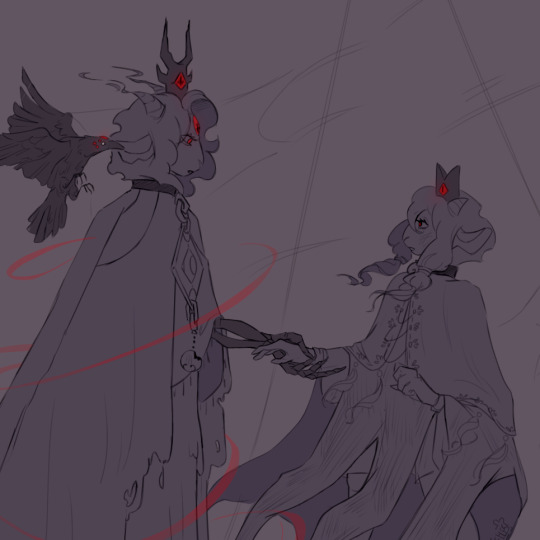
Day 24: Other side
Previous/Next
(prompt list here!)
#my honest reaction when i pull my own fucked up self reflection from a puddle (the ocean): 😨#ive named them Nyx and the crows/ravens are Selene (the one with the beak horns) and Mene#lambert: oh my god i have to bring this to narinder like ASAP#nyx; internally; while passively reading their mind: cat. cat alive ????? hmm. :))))#gang i cant wait to draw story for them grrrr grrr#this au has nothing to do with greek mythology i just like how the name feels and its meaning#cotl#my art#cotl lamb#two (2!!) of them#cotl fanart#cotltober#drawtober#cotl drawtober#cult of the lamb#faithless reflection au
579 notes
·
View notes
Text

2024 art summary! it sure has been a year
#ever makes art#i bsky tweeted a bit but it feels weird talking there still so ill do my usual rambling into tags here :)c#i burned out super bad in the middle of this year for months where it felt like i couldnt draw anything good no matter how hard i tried#and the harder i tried the worst it felt - to the degree that i legitimately thought i wasnt going to be able to draw anything again#which sounds SO dramatic i know i know. but feelings arent always rational!!! and so many others things were going wrong at the same time#so it was strange putting together this year's art summary and realizing Huh. i did still have paintings to put in every space#that fear/anxiety spiral seems even sillier and more meaningless now that i have distance and proof of how irrational it was...#...but in reflection i'd like to think of it as proof that even when you feel at your worse it's worth it to keep trying...!!#after the Black Hole of Nothing i've been working every day on never ending doujin and xv anthology and orv sketchzine and merch#i can't say that i feel my artistic skills have like. improved or anything... but the passion i feel for the stories i read and#the stories i want to tell is still there!! and the happiness from getting to put form to those feelings large or small is worth it too#anyway......... lotta words to say tho i haven't posted much anymore and socmed is imploding and the world is dark#thank you very much for staying with me another year. i am - as ever - always grateful
340 notes
·
View notes